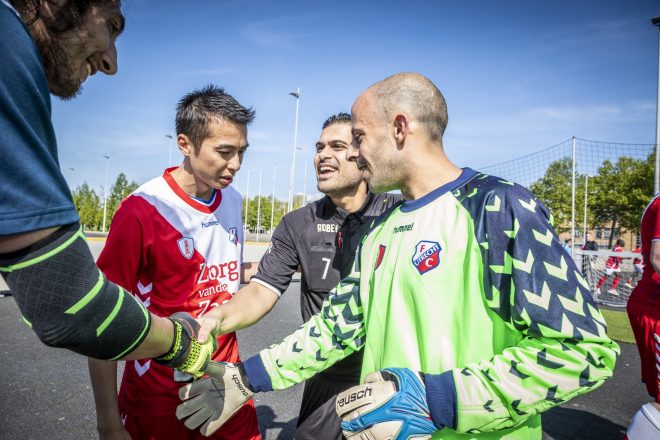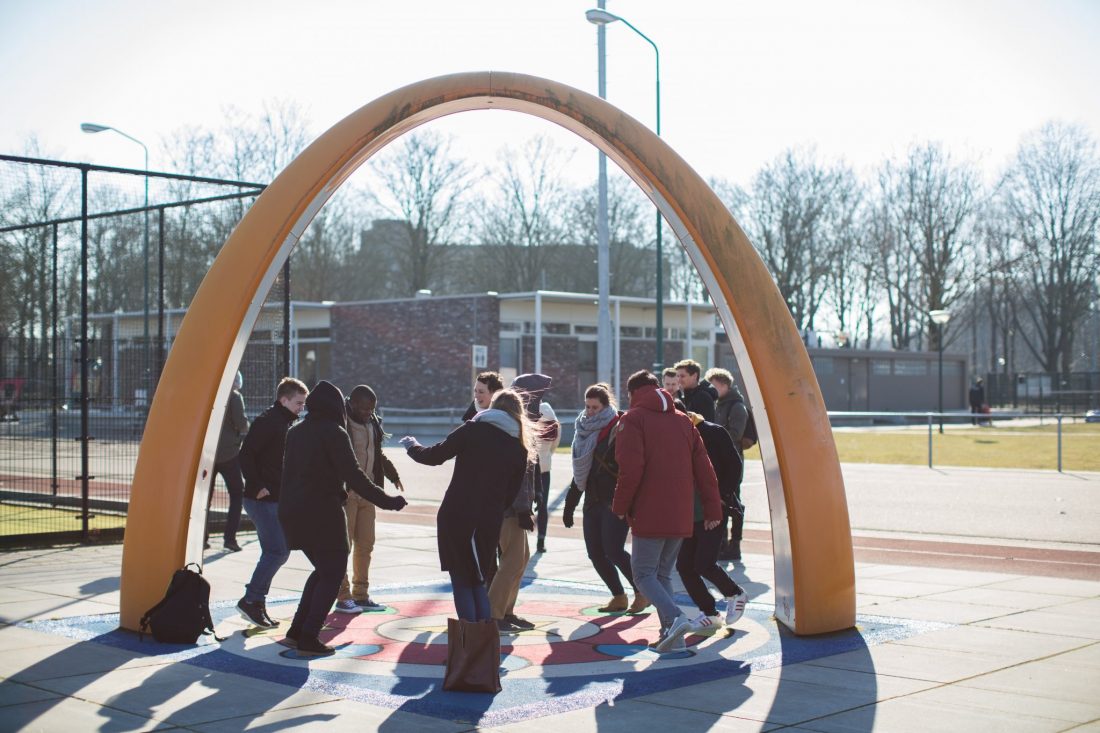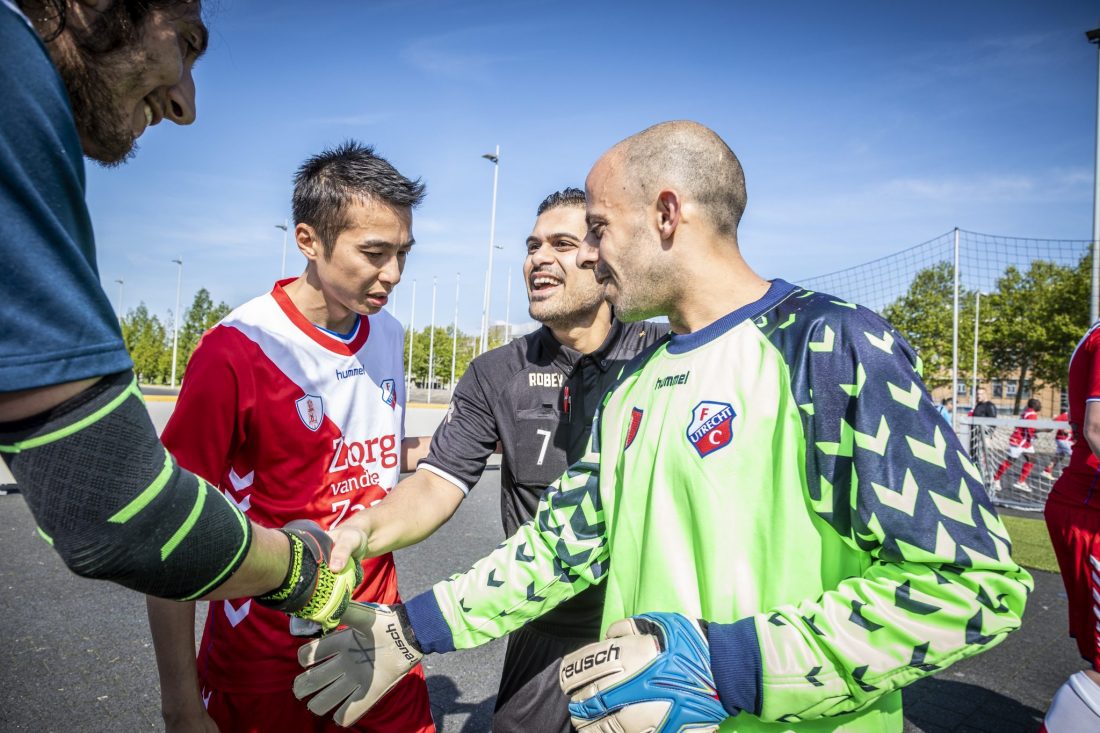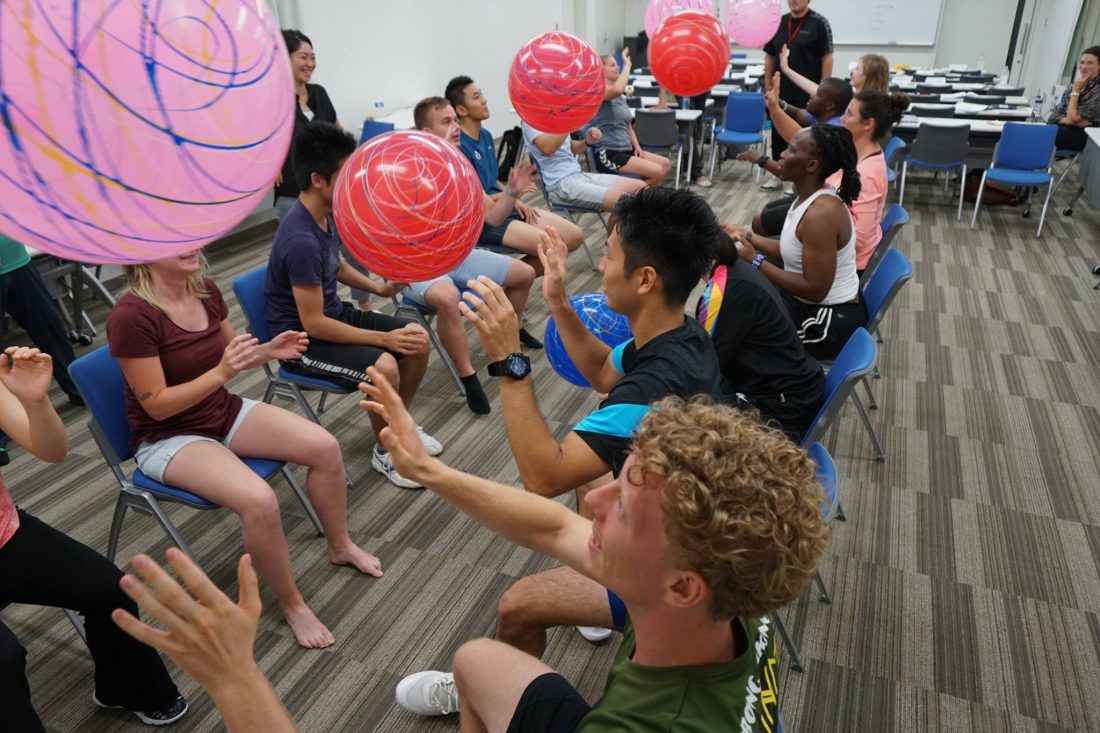
Calibrating Inclusive Sporting Encounters
The research project Calibrating Inclusive Sporting Encounters focuses on the organisation of sporting encounters for different groups of people in socially vulnerable situations with a low socio-economic position.

Introduction
The research project Calibrating Inclusive Sporting Encounters focuses on the organisation of sporting encounters for different groups of people in socially vulnerable situations with a low socio-economic position.
The reason for this is that their participation in sports and physical activity lags behind in comparison with other groups.
People in a low socio-economic segment, including the long-term unemployed, the homeless, and refugees, often feel marginalised and lonely and experience great difficulty in keeping their lives on track, which increases their risk of exclusion in society (RIVM, 2018). The fact that many people in a vulnerable position do not structurally participate in sports and physical activities means that they do not experience the benefits of sporting encounters either.
The research project
The aim of this research is to map the impact of frontline workers (e.g. community sports coaches, social workers) and their organisations on inclusive sports encounters for people in a socially vulnerable situation, so that practitioners strengthen their skills and networks to create inclusive sports encounters.
By sporting encounters, we mean encounters in which people in a socially vulnerable position come into contact through sport with people in a similar situation, as well as with ‘other’ people and professionals.
CISE Characteristics

Multi-and trans disciplinary
The researchers each have their own perspective on the research question and combine their knowledge. They work together with various organizations and individuals in practice.

Living lab methodology
The research will take place in a ‘living laboratory’, which means that the researchers observe and analyze practices in three neighborhoods in the Netherlands.

Local collaboration
The researchers work together with the target group, parents and relevant local professionals in the living labs on (further) intervention development. The researchers contribute knowledge from their research perspective (see below) and from their experience with intervention development.

Evaluation of interventions
The researchers evaluate the (further) intervention development.Depending on the stage of intervention, this may include a feasibility evaluation, a process evaluation or an effect evaluation.
Three levels

Macro-level
This level forms the context for this research project. It concerns the policy and physical environment in and through which sporting encounters take place.

Meso-level
This level concerns the network configurations and interactions between organizations, such as the municipality, social work and sport service organizations. We analyze the configuration and dynamics of cooperation between these organizations, and their frontline professionals and the way in which they try to shape more inclusive sporting encounters and how this can be strengthened.

Micro-level
This level concerns the interaction between frontline workers and people in vulnerable positions. We analyze their interaction in order to distinguish enabling and constraining routines for inclusive sporting encounters.
Living labs
Wat is living labs?
Living labs are a research and design methodology for developing and testing services or processes in co-creation with users in a real-life environment that is applied by research institutes in collaboration with public and private partners.
How we use living labs
A first step in the research project is to carry out a needs assessment in each living lab. Based onanalysis of current interventions, policy documentsand group interviews with stakeholders thetarget group and target behaviourwill be specified. The needs assessment might show that weshould focus on groups of children with a particular background and the desirable target behaviour issports participation, playing outside or active transport, for example.
For more information about the living labs, see the PACT maps (people-activities-context-technologies) of Leidsche Rijn and Tongelre:
News and updates
For updates and news on CISE, please check out the CISE Web-site.
